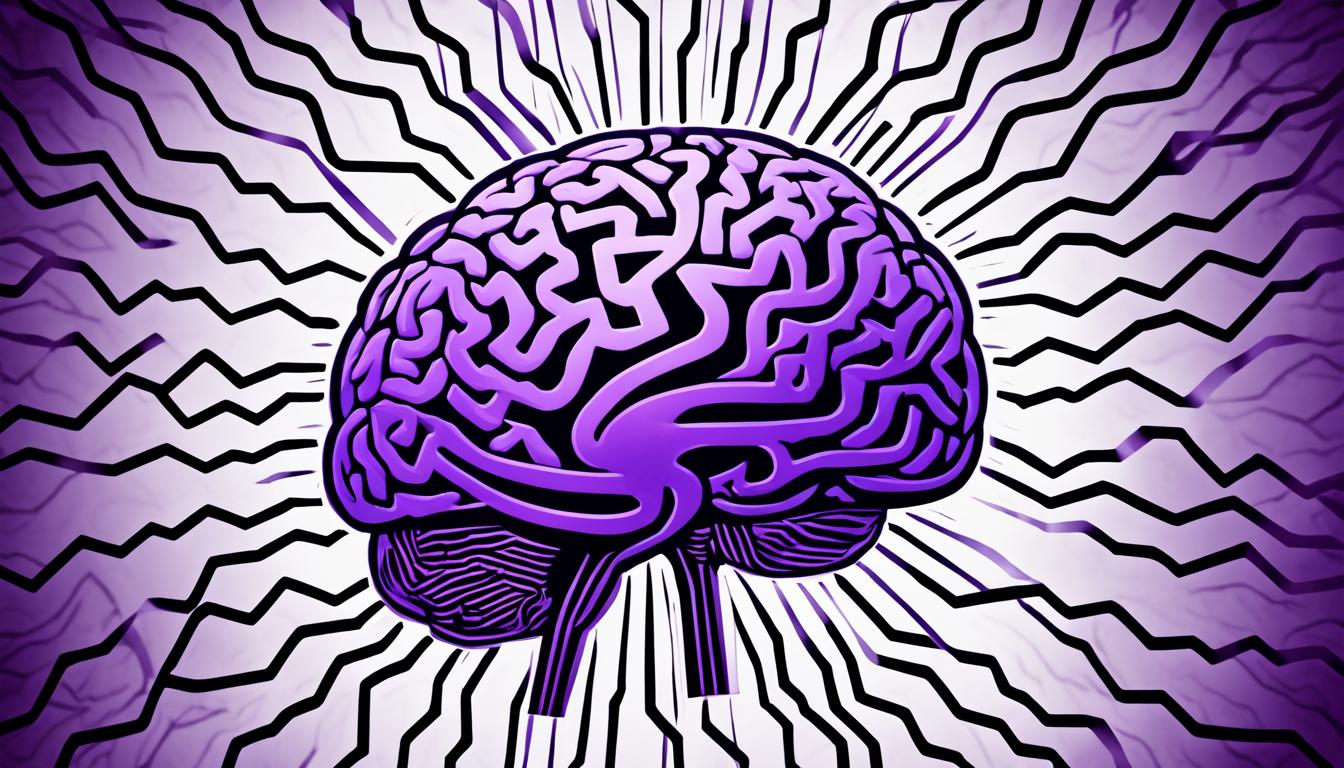Psychological Effects of Lupus
 December 1, 2023 | Lupus
December 1, 2023 | Lupus

Table of Contents
- What is the Connection Between Lupus and Psychological Health?
- How Does Lupus Affect Neuropsychiatric Symptoms?
- Quality of Life in Patients with Lupus
What is the Connection Between Lupus and Psychological Health?
Patients with systemic lupus erythematosus deal with consistent painful symptoms that can affect their day-to-day living. These symptoms can range from a butterfly rash across the face to headaches, pain, and even kidney issues. People with lupus can even become disabled as time progresses if the symptoms aren’t managed or controlled effectively. Although the symptoms of lupus can be physically unpleasant, many fail to realize that living with any chronic illness can take a psychological toll on your mental health as well.
Understanding the Impact of Lupus on Mental Health
Taking care of your mental health issues is just as important as taking care of your physical health. Generally, people will focus on the physical symptoms first because that’s what we see and what we focus on during our doctor’s appointments. However, lupus may lead patients to have symptoms of depression, isolation, mood swings, anxiety, and other mental disorders. When we don’t feel good mentally or physically, it can become more and more difficult to manage lupus flares and can keep lupus patients from living their best lives possible.

Exploring the Relationship Between Lupus and Depression
When a person is diagnosed with lupus, this can lead that person to feelings of psychological distress and feelings of sadness. If the symptoms of lupus aren’t managed well, this can mean that the person is living with endless days of pain, being removed from family and friends’ activities, as well as canceling plans due to feeling unwell. This type of isolation over a period of time takes a toll on a person’s emotional and psychological well-being and can very well be one of the predictors of depression.
The correlation between depression and lupus is very high. Many report feelings of hopelessness during lupus flares and others report feelings of depression as a result of the side effects of medications. For many patients, medication is an absolute necessity but according to the Lupus Foundation of America, certain medications used to treat lupus symptoms such as prednisone, can cause clinical depression. This is why it’s important for physicians and rheumatologists who treat sle patients, to pay attention to the mental effects that some of the treatments can have by using the depression scale each office visit. This can help monitor their depressive symptoms, and the severity of depression, and can help the physician to make necessary adjustments for a better life for the patient overall.
Managing Anxiety and Depression in Systemic Lupus Erythematosus
Major depression and anxiety in systemic lupus erythematosus are the most commonly reported psychological effects of this chronic illness. Anxiety in lupus is not uncommon depending on symptom management, and the level of physical effects the lupus activity may have or may be causing them to experience during that time. Emotional stress levels in lupus have been reported to be higher than the average individual which can lead to having anxiety in patients. With the various amounts of unpredictability that come with the diagnosis of lupus, it’s no wonder that lupus patients deal with some level of anxiety or depression.
However, anxiety can be managed along with the symptoms of lupus as well. Some of the ways to manage anxiety are:
- Taking frequent walks
- Finding a local support group
- Finding comfort in your local church or faith
- Reading
- Participating in hobbies or activities
- Visiting friends or family
- Watching a streaming series
- Deep breathing
- Yoga
- Volunteering in your community
- Starting a garden or buying a houseplant to tend to
- Dancing
- Listening to soft music
- Drawing
- Completing Puzzles
These are just a few ways to help manage anxiety when living with lupus or living with a chronic illness. During flares or days when the disease activity seems severe, even listening to music can help the soul and body begin to feel relaxed when anxiety is being experienced.

How Does Lupus Affect Neuropsychiatric Symptoms?
It’s already been said that lupus may cause emotional problems when dealing with continuous psychological stressors, but it also can be linked to depression, anxiety and more. So how exactly does this chronic disease affect neuropsychiatric symptoms? Systemic lupus erythematosus not only affects the nervous system, internal organs, and more, but it can also take a toll by having neurological effects. This can be a direct result of the inflammation that is produced during lupus flares when the lupus disease activity overburdens the body’s immune system. The inflammatory response can cause neurological symptoms from a physical perspective and from an emotional and mental perspective as well.
Other neuropsychiatric symptoms can come as a side effect of certain medications used to treat lupus. Some medications can make the heart rate elevate, blood pressure drop, or cause additional brain fog. This can lead to a physical and psychological reaction as a result. If the medication prescribed is causing any of these symptoms, a physician can add a medication to combat these side effects or make adjustments to the dosage given to the patient.
Psychiatric Symptoms in Lupus Patients
Lupus patients may experience psychiatric symptoms in addition to their physical symptoms. Sometimes it can be difficult to distinguish which is caused by lupus and which is caused by other factors. Here are some of the most common psychiatric symptoms found as effects of sle:
- acute confusional state
- anxiety disorder
- cognitive dysfunction
- mood disorder
- psychosis

Without understanding what the psychiatric symptoms are or the causes related to lupus, patients can suffer from these psychiatric illnesses without relief in sight. Psychiatric disorders in systemic lupus erythematosus patients can range from mild such as anxiety to more serious disorders such as psychosis.
Understanding Psychosis and Mood Disorders in Patients with Lupus
Psychosis is defined as a severe mental health care condition in which rational thoughts and rational emotions are not present in the patient. This means the patient, in a sense, loses touch with reality. Neuropsychiatric lupus occurs when lupus begins to affect the spinal cord, the brain, and the nervous system. This can produce the same effects of psychosis that happen in those who don’t have lupus. However, psychosis in lupus occurs in over 40 percent of patients with severe lupus symptoms. The level of psychosis is generally associated with disease activity that is present at the time.
There is also an association between lupus and mood disorders as well. Mood disorders can be defined as a group of mental conditions that persistently disturb the patient. These mood disorders can be due to living a poor lifestyle as a result of the chronic illness. Lupus can make the body produce physical affects that can also cause mood disorders. This often happens when the body goes into a lupus flare or produces additional inflammation to the body. Mood disorders can also be a result of the medication used to treat the chronic illness but can be adjusted or have other medications added to combat the side effects.
Quality of Life in Patients with Lupus
People with systemic lupus erythematosus can lead a productive life full of happiness and good health. This however can be a challenging issue for most because of the manifestations in systemic lupus erythematosus. Without proper treatment that focuses not only on physical symptoms but on the patient’s emotional well-being as well.
Living with the Emotional Effects of SLE
Lupus patients compared to others can certainly live with many challenges when faced with the effects this illness can take on their mind, body, and soul. The association between depression, mood disorders, and other psychiatric illnesses is very high. Psychiatric disorders in patients with systemic lupus erythematosus can be directly related to the disease and its treatments as we have seen. However, this quality of life each patient has can be determined by their treatment plan, the progression of the illness, and their overall support system.
Living with lupus and it’s emotional effects doesn’t mean that life has to be dull or dreary. Many people with lupus lead absolutely fulfilling lives with joy, happiness, and longevity. The key is to keep the symptoms managed well and to focus on overall wellness. Including a plan to take care of your mental health is vital especially knowing that lupus can cause depression or major depressive disorder if not taken care of. Other important factors are having a strong support system. This can help alleviate stressors and possible burdens that can come with the daily effects psychiatric disorders can present.

Hi there. I’m Angela…and I live daily with chronic illness. For the longest time, I suffered in silence for fear of being judged or criticized. When I finally started opening up, I realized that I’m not alone in all of this and if you have a chronic illness, neither are you!
ABOUT

Hey there! I'm Angela,
I am a survivor of cancer, lupus, fibromyalgia, and a teenage daughter. Join me as I document my experiences and educate the world on my chronic illness journey.


